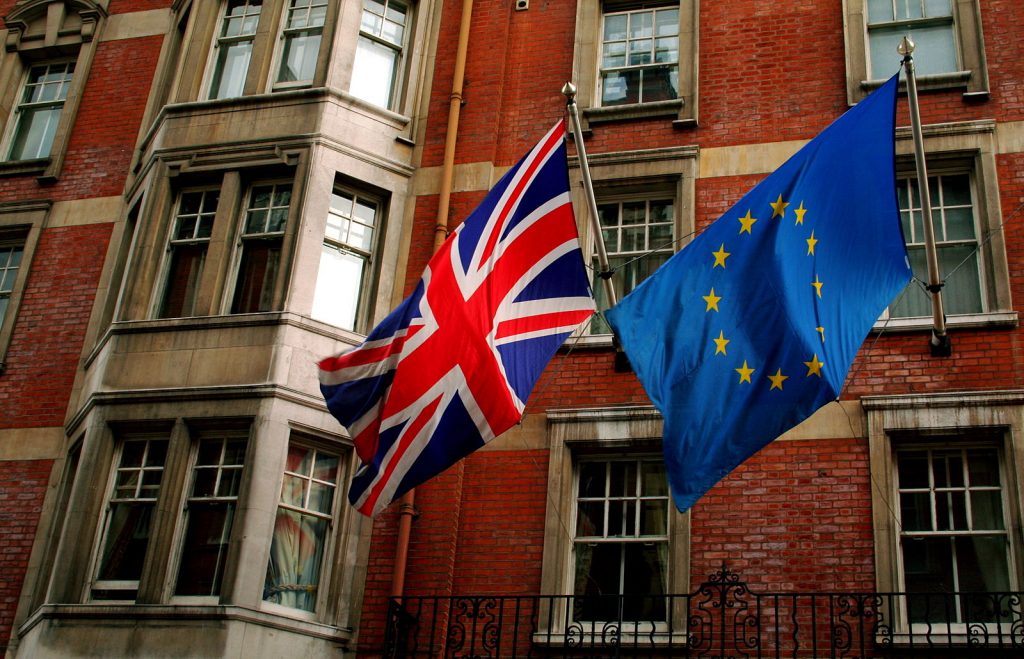The EU Should Learn from Britain’s Business Ambitions

The British are doing what they can to strengthen their position in the battle for jobs and investments. Their foremost ambition ever since Theresa May’s days in Downing Street has been to become best in Europe for business. The EU should see that as a positive challenge, not as a threat, writes Swedish MEP Jörgen Warborn (M/EPP).
Boris Johnson leads the UK with the very same ambition as his predecessor. The Conservative government has therefore signalled proposals for lower taxes, reduced regulatory burdens and more favourable conditions for foreign investments. What the UK loses through Brexit, they are determined to regain through a vital business policy.
This orientation is met by worry and hostility by many EU leaders and politicians in Brussels. That the UK would be able to compete through fewer costly regulations and less burdensome bureaucracy would not be fair, these politicians argue. The direct reaction of the EU is horror at the prospective loss of today’s level playing field. Those of us who believe in the driving force of competition, free markets and minimal bureaucracy are naturally coming to another conclusion. We believe that the EU should welcome Britain’s cocky and ambitious goals for its business climate and do what we can to follow, or even better lead, the strive towards a better business climate.
In a time when the EU has spent decades falling behind in the global competition, the British focus on competitiveness may actually become the wake-up-call that forces EU politicians to realise the scale of our business climate problems and present a roadmap to improve our competitiveness. For far too long, issues of business climate and the conditions for European entrepreneurs have been missing on the agenda in Brussels. This lack of political interest brought substantial negative consequences. The EU is underperforming gravely compared to other major economies in the world. Its politics have been too self-contented and lazy, and the fighting spirit needed to become successful has been lacking. I sincerely hope that Brexit will make European politicians step up and want to be winners in global competition.
Do not get me wrong about the fact that Brexit always has been, and still is, a bad idea for both the UK and the EU. However, there are always two sides to the same coin. Brexit could set off positive spirals. If we are to believe Johnson and his Conservative government, Britain will get into high gear to improve its business climate. That should spur the EU to do the same. Facing this situation, the alternatives at hand for the EU would be either to try holding back the UK or to accept the challenge and put in place a powerful reform package for a better business climate. From my point of view, it is obvious that we must do the latter.
Personally, I have been monitoring the Brexit issues closely ever since I became Member of the European Parliament. My focus has been to straighten out the question marks that has arisen within trade and transport policy. I am responsible for the EPP group’s work with the EU-UK agreement’s transport chapter and just recently, the parliament’s Transport Committee adopted our proposal.
In these negotiations, I was faced by harsh resistance from the politicians that would rather like to isolate and punish UK for leaving the union. That is unfortunately a characteristic of both socialists and self-proclaimed liberals in the parliament. Both the social democratic and the liberal group have been lacking interest in listening to the worries of SMEs about increased bureaucracy that would be the result of anything else than a close relation EU-UK. Instead they have been advocating to increase the distance between us and the UK and leave room for rapidly growing bureaucratic burdens, which would hamper the economy on both sides of the sea. I am happy that they eventually let go of this destructive viewpoint and gave in to the proposals by me and the Swedish Moderates. After many weeks of negotiations, I am very content about gaining support for a business friendly and future oriented negotiation strategy.
I have been working to achieve unhindered transport conditions and avoiding any new administrative burdens for exporting small and medium sized enterprises. We must also cooperate closely with the UK on common research programmes and build a full-scale and seamless network for charging infrastructure, which would be highly important for the Swedish automotive industry. The Transport Committee’s position is an important step on the way, but still most of our work lay ahead. With the tight timeframe that Boris Johnson hangs on to at all costs, it will not be easy to finalise a thought-through, comprehensive and well-functioning EU-UK agreement on time, but what I can do to facilitate the process, I will surely do.
To match the British ambitions and make sure that the EU does not fall behind, we must propose a roadmap to achieve a major reduction of administrative burdens for the businesses, especially the small and medium sized ones. That must lead to a directive to EU Member States that establishes an ambitious target for how great the reduction should be, and what measures must be put in place to reach this goal. If we are to restart the European economy after one of its greatest times of crisis, our SMEs must be able to focus wholeheartedly on managing their core business, not worrying about a never-ending flow of paperwork. Bureaucracy costs time and money that entrepreneurs do not have.
For the sake of European long-term competitiveness, the EU must stop considering UK a hostile opponent, and instead be inspired by their business climate ambitions. If they can improve the conditions for their entrepreneurs, then surely we can for ours too. If the UK wants to become a business paradise, the EU should not hinder them – we should go ahead of them.
Jörgen Warborn is Swedish Member of European Parliament (M / EPP)